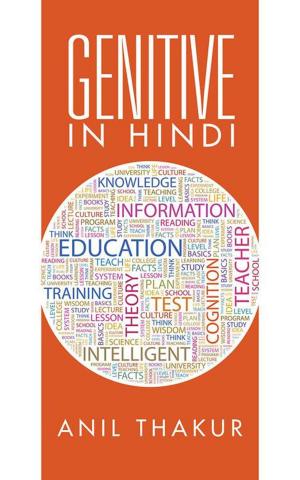Consider Israel
Covenants in History
Nonfiction, Religion & Spirituality, Bible & Bible Studies, Bibles, Fiction & Literature, Religious| Author: | Dr J.WAAR | ISBN: | 9781482889383 |
| Publisher: | Partridge Publishing India | Publication: | April 11, 2017 |
| Imprint: | Partridge Publishing India | Language: | English |
| Author: | Dr J.WAAR |
| ISBN: | 9781482889383 |
| Publisher: | Partridge Publishing India |
| Publication: | April 11, 2017 |
| Imprint: | Partridge Publishing India |
| Language: | English |
Consider Israel: Covenants in History looks at Biblical covenants and covenant features as a framework to study much of the Old Testament, the eschatological prophecies etc. It highlights the correlation between covenant curses and the troubled Jewish History. It traces the relevance of the covenants to the past, and also to present and future unfolding events, which will impact the Jews, and ultimately, the destiny of the world. The books description of covenants in relation to covenant features, is different and worth considering. Historical evidences giving support to the study of ancient Israels failure as a covenant partner, and the resultant curses, lend more insights to the God of Israel acting in its history. The (far-reaching and inclusive) New Covenant has been examined, along with a summarized comparison with the Mosaic covenants. The covenant relationship between God/Christ and His people, metaphorically depicted as a marriage bond, is in contrast to Babylonian Paganism (adulteress/ harlot) which has infiltrated ancient Israel and Christianity. Different views on Suffering are included in the context of past, present and the predicted future suffering. Chapter 8 concludes with a note of hope especially for Israel for the fulfillment of the promised blessings. There are 4 particular features which may be noticed: (1) The careful research and in-depth study. The arguments presented are based on objective facts and observation of Jewish and contemporary world events, sustained by the weight of reliable and verifiable historical evidences. (2).The writers astute personal observations and insightful comments on relevant issues. (3) The books ability to whet ones appetite; it leaves one with constructive discontent because it pushes one to find out and to examine more about the topics discussed. (4) The tone of the writing is scholarly yet, informal and conversational. The book is reader- friendly, meant for all readers.
Consider Israel: Covenants in History looks at Biblical covenants and covenant features as a framework to study much of the Old Testament, the eschatological prophecies etc. It highlights the correlation between covenant curses and the troubled Jewish History. It traces the relevance of the covenants to the past, and also to present and future unfolding events, which will impact the Jews, and ultimately, the destiny of the world. The books description of covenants in relation to covenant features, is different and worth considering. Historical evidences giving support to the study of ancient Israels failure as a covenant partner, and the resultant curses, lend more insights to the God of Israel acting in its history. The (far-reaching and inclusive) New Covenant has been examined, along with a summarized comparison with the Mosaic covenants. The covenant relationship between God/Christ and His people, metaphorically depicted as a marriage bond, is in contrast to Babylonian Paganism (adulteress/ harlot) which has infiltrated ancient Israel and Christianity. Different views on Suffering are included in the context of past, present and the predicted future suffering. Chapter 8 concludes with a note of hope especially for Israel for the fulfillment of the promised blessings. There are 4 particular features which may be noticed: (1) The careful research and in-depth study. The arguments presented are based on objective facts and observation of Jewish and contemporary world events, sustained by the weight of reliable and verifiable historical evidences. (2).The writers astute personal observations and insightful comments on relevant issues. (3) The books ability to whet ones appetite; it leaves one with constructive discontent because it pushes one to find out and to examine more about the topics discussed. (4) The tone of the writing is scholarly yet, informal and conversational. The book is reader- friendly, meant for all readers.















